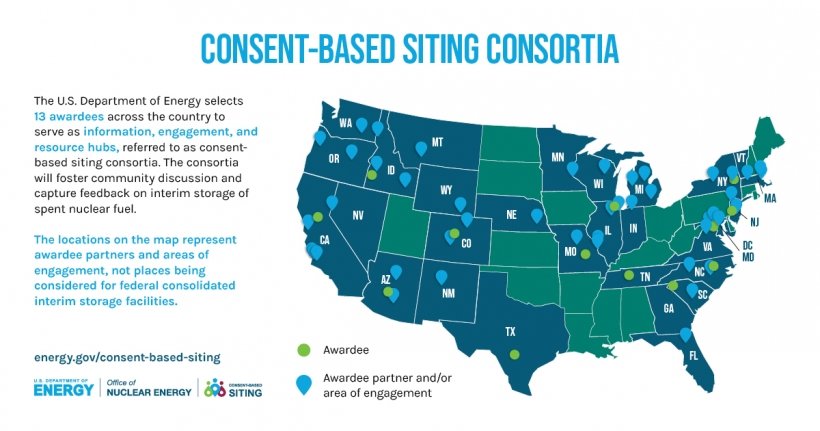Department of Energy Selects Keystone to Lead Community-centered Approach for Storage of Spent Nuclear Fuel
Keystone Policy Center was among 13 groups selected by the Department of Energy to work with communities interested in DOE’s community-centered approach to storing and disposing of spent nuclear fuel, the agency announced June 9. DOE, along with the consortia of selected groups, will work with communities to ensure transparency and local support, a process known as consent-based siting.
According to the DOE, consent-based siting is an approach to siting facilities that focuses on the needs and concerns of people and communities and centers equity and environmental justice. Communities participate in the process by working through a series of phases and steps with the Department, helping them determine whether and how hosting a facility to manage spent nuclear fuel is aligned to their goals. The process consists of three stages: planning and capacity building, site screening and assessment, and negotiation and implementation.
Keystone has experience in consent-based siting and permitting efforts for energy projects. Earlier this year, Keystone released a report detailing its community-based siting engagement efforts with Apex Energy after working with residents in Vermillion County, Indiana. The approach involved independent research, outreach, and engagement from the facilitation team alongside work by Apex staff to develop relationships within the community. Community engagement opportunities took several forms so that residents could participate in the manner that worked best for them.
Keystone Policy Center will lead a group that includes the Social and Environmental Research Institute, GDFWatch (UK), and the National Association of Regional Councils (DC), which will receive about $2 million and represent diverse organizations to enable a broad spectrum of perspectives and approaches.
Read the full announcement from the Department of Energy here.










